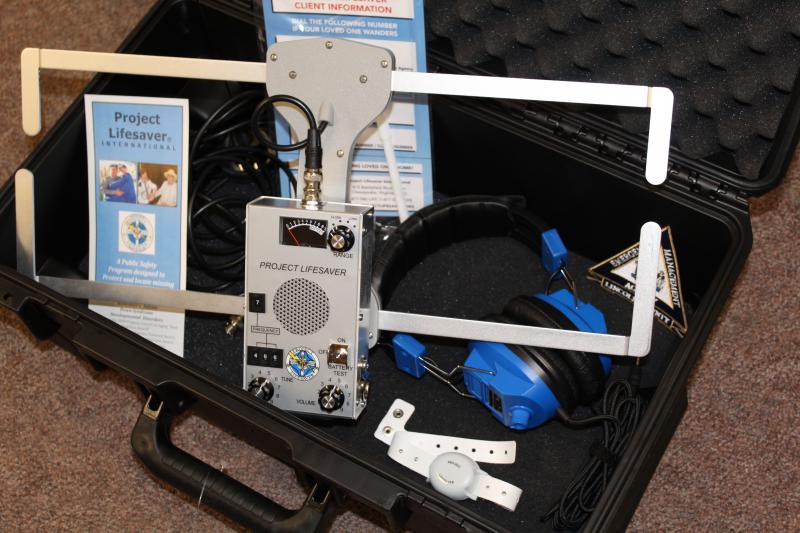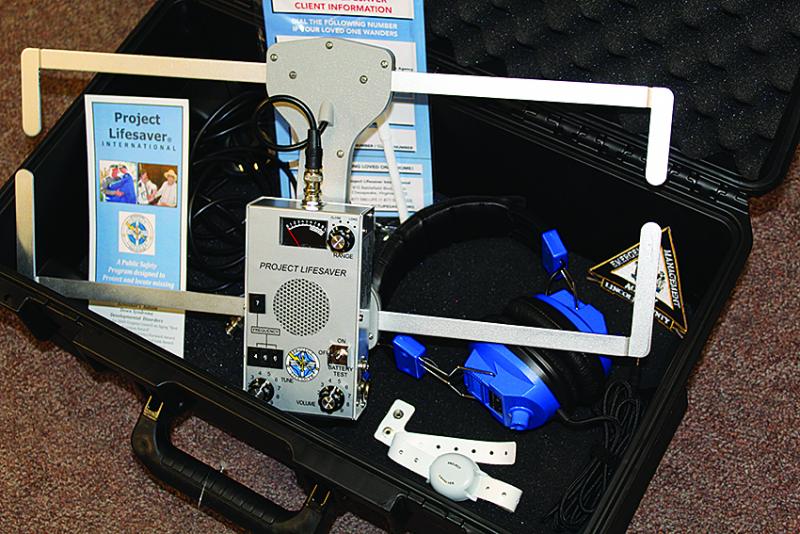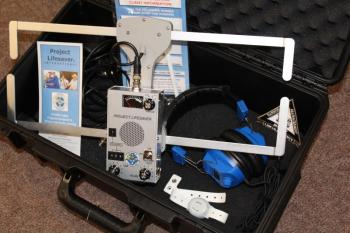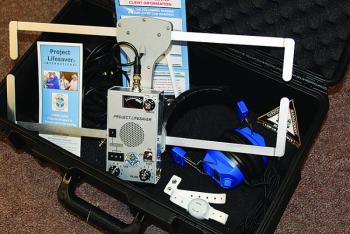Project Lifesaver opens to more clients
The Project Lifesaver program serves those with a brain disease, dementia, injury, autism, or other brain condition that can lead to wandering.
A case in May 2017 brought the issue to the attention of Lincoln County commissioners. Willem Jansen, 82, who suffered from Alzheimer’s disease, was reported missing by his wife around noon. He had set off on a regular walk from his home in Round Pond to a property the couple owned in Bristol. He didn’t return, and the Warden Service was called to search for him. Nearly 24 hours later, Jansen was found in the woods, in a shallow pond. He was cold and disoriented, but survived.
The commissioners asked the Emergency Management Agency, which is in charge of search and rescue in Lincoln County, to look for alternatives that might help find someone sooner. EMA Director Casey Stevens said the agency was already looking into options, but Jansen’s disappearance escalated matters.
They found was Project Lifesaver, a simple device that can identify a radio transmitter a patient wears. The county paid the initial cost of the program, and a pilot project was launched, for two children with autism. Neither has wandered since they were fitted with the transmitters.
Thanks to a grant from the Stephen and Tabitha King Foundation, the county can buy many more, and wants to open the program up to as many people as possible. “We can purchase 10-12 transmitters with the grant money,” Stevens said. “If we run out, people can purchase their own, if necessary, but we are hoping that the community will step up to donate funds so we can buy even more.” He said the goal is to provide the service at no charge to Lincoln County residents.
Any donation to buy transmitters is tax-deductible, he said. To learn more, call 882-7559.
Patients wear the transmitters like a small watch. The device emits a chirp a radio receiver can hear. Trained Project Lifesaver personnel are contacted if a patient goes missing. The search starts where he or she was last seen. Seven people are on the Project Lifesaver team.
Each transmitter works on a basic analog radio signal to detect over a larger distance and then close in on the transmitter with the receiver. Each transmitter has a separate radio frequency, so the team won’t accidentally look for someone who is not missing.
Caregivers are instructed on what to do if the patient goes missing. The team visits those with the transmitters every 45-60 days and replaces the battery and the band.
Lincoln County is one of eight agencies in Maine currently using Project Lifesaver.
To apply, a patient must have a diagnosis of a brain or developmental condition that is covered. Typical conditions include Alzheimer’s, dementia, brain injury, and autism. For more information, or to apply for a transmitter for a patient, call 882-7559. More information is available at lincolncountyema.net
Event Date
Address
United States




























